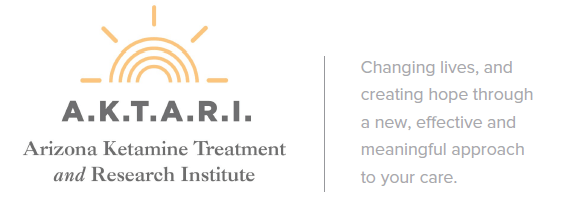Discover an innovative, new and effective way to treat debilitating depression…
If you or a loved one are struggling with depression, even debilitating, treatment-resistant depression (TRD) that drains your energy and deprives you of the life that you deserve, Ketamine therapy likely will help. Growing evidence suggests that a single dose of Ketamine produces a series of rapid and remarkable antidepressant properties!
YES, Ketamine can help. Few things in life are more frustrating than feeling unwell and miserable, trying to get better, taking medications, going through the all the right steps, and STILL not finding relief. When we heard about a new treatment that was helping 85% of patients climb out of the depths of depression, we had to learn more. We discovered that Ketamine treatment really was an answer to treating mild, moderate, severe, and treatment resistant depression. After treating our first few patients, we witnessed firsthand the dramatic improvements from Ketamine therapy.
Continued data shows how effective Ketamine is for major depressive disorder (MDD). A recent double-blind, placebo-controlled crossover study again showed that symptoms of MDD are rapidly alleviated by administration of a single dose of Ketamine. This specific study showed “connectivity changes in the insula in MDD subjects suggesting that Ketamine may normalize the interaction between the DMN and salience networks, supporting the triple network dysfunction model of MDD.” http://www.biologicalpsychiatryjournal.com/article/S0006-3223(18)30085-4/fulltext
A Patient’s Story
At 46, Dennis had been dealing with major depression for over 30 years. He had tried more than 15 different antidepressants and nothing worked. Dennis was ready to give up, and he even went as far as scheduling his suicide. But one fateful night, he saw news story about Ketamine. He immediately sent an email to join the trial which provided him with treatment a few days later. “Within a few hours I could tell that my anxiety and depression were completely gone for the first time in my memory,” he recalls. Ketamine not only relieved Dennis from his crippling depression and stopped him from going through with suicide — it turned him into a Ketamine treatment depression evangelist. He now runs the Ketamine Advocacy Network so he can spread awareness about the depression treatment that saved his life.
Dennis’ story is just one example of how powerful Ketamine treatment can be, even in the direst situations.
This safe, effective, and rapid treatment pulled Dennis out of a deep depression he thought he could not defeat, and it is possible Ketamine may do the same for you. Do not hesitate to explore this option and contact us with any questions or concerns.
Contact us today and take a stand against depression. Your phone call or email to AKTARI will bring you one step closer to a treatment that may dramatically decrease the symptoms of depression and works to save lives.
About Depression
Depression is a mental health condition defined by persistent feelings of sadness and a loss of interest in things that normally would bring a person joy. While everyone experiences temporary sadness from time to time, if these feelings continue long term and begin to affect aspects of your daily life, you may have clinical depression.
Depression is treatable with therapies, medication, and lifestyle changes.
Facts about depression
You are not alone. One out of 18 Americans reports having experienced depression within the past 12 months.
You cannot “snap out” of depression. It is not a question of willpower.
30% to 40% of depression sufferers do not get better with typical antidepressant medications alone.
Depression increases a person’s risk of alcohol abuse, drug abuse and suicide.
Men tend to experience depression less as overwhelming sadness and more as debilitating fatigue or persistent low energy.
A person’s inherited genes, brain chemistry, hormones, lifestyle and circumstances can all contribute to depression.
Mental Health Professionals have identified different types of depression:
• Major Depression (MDD)
• Persistent Depressive Disorder
• Bipolar Disorder
• Peripartum (Postpartum) Depression
• Premenstrual Dysphoric Disorder (PMDD)
• Atypical Depression
Major Depression is also known as Major depressive disorder (MDD). When a person is diagnosed with depression, their doctor is usually referring to MDD. People with MDD have had symptoms of sadness, low mood and disinterest consistently for two weeks or more. They may also exhibit low self-esteem or pain that doesn’t have a clear cause.
Persistent Depressive Disorder is characterized by low mood that is constant and long term, but not as severe as major depression.
Bipolar disorder used to be called Manic-depressive disorder or Manic-Depression. It is characterized by mood swings from extreme sadness (depression) to emotional highs (mania). These dramatic fluctuations in mood can happen suddenly or come on gradually and often interfere with a person’s ability to function in his or her work and personal life.
Premenstrual Dysphoric Disorder (PMDD) occurs when a woman experiences symptoms of depression, irritability and stress just before her period. While these can be common symptoms of premenstrual syndrome (PMS), PMDD is much more severe.
Peripartum or postpartum depression (PPD) occurs just after childbirth when a woman experiences debilitating symptoms of depression, low energy, anxiety, irritability, crying spells and/or changes in sleeping and eating patterns. Many women do experience some symptoms of hormonal upheaval after giving birth, but PPD is suspected when these symptoms are severe and last longer than two weeks.
Atypical depression is also called depression with atypical symptoms. These symptoms may include increased appetite, weight gain, sleepiness, or a feeling of heaviness in the arms and legs. People with atypical depression may feel rejected, be easily offended, and at times feel that life isn’t worth living. Their mood may also fluctuate easily in response to their environment.
Recent findings have also found that the use of Ketamine for late-life TRD led to a significant and sustained improvement in depressive symptoms. Ketamine is a promising treatment for geriatric TRD patients.
